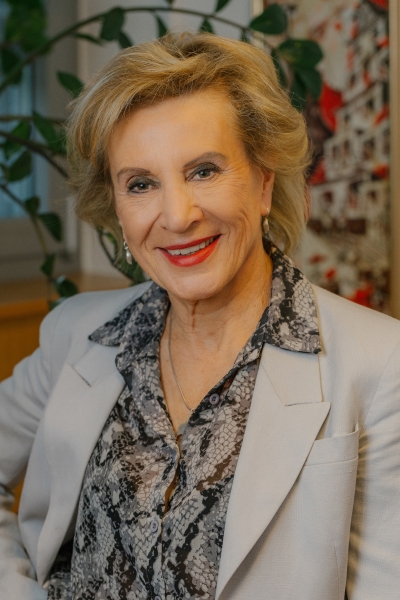Cannabis - the prohibited plant or promising medicine?
Date: 01.02.2019
''To summarize, I think it would be imperative to eliminate the administrative limitations for biomedical (including clinical) research of cannabis, which is even criminalized and stigmatized as a "prohibited drug" in professional circles!''

Tamara Lah Turnšek, Ph.D., Professor
National institute Of Biology, ICANNA - International Institute for Cannabinoids
Oncologists of course treat cancer also systemically, with chemotherapy, but unfortunately, this treatment destroys a large portion of normal healthy tissues, which is reflected in severe side effects. We researchers are devoting too little attention to this, but additional treatment of side effects is necessary. The oncologists are already additionally treating the symptoms of the side effects, but the best alternative would be to reduce the dose of chemotherapy in the process of standard treatment protocols as much as possible. Adjuvant treatment can also contribute to this. Such treatment would include more of non/less aggressive substances that activate our body’s own (endogenous) repair systems that do not deplete the body and protect normal cells in the tumor environment. Contrary to chemotherapeutics, which, according to recent publications, even induce new mutations in cancerous stem cells, our own defense systems strengthen us, e.g. of the immune system, or until now relatively poorly studied endocannabinoids. The latter include substances such as anandamide (AEA), 2-arachidonoylglycerol (2-AG), and other substances produced especially in the brain cells. They bind to cellular receptors and have been proven to affect cancer cells and also systemically influence our complex immune system. Exogenous plant cannabinoids therefore offer additional opportunities for the so-called "natural" cancer treatment. Exogenous cannabinoids cause a number of very specific effects specific for each individual cannabinoid and the nature of both normal and tumor cells. It has been found that cannabinoid receptors are expressed more on the surface of cancer cells and that cannabinoids by binding to these receptors ultimately cause programmed cell death (apoptosis). This happens through the process of autophagy when the cells first begin to disintegrate themselves. Cannabinoids, as we know, are produced by plants, among them cannabis.
Some of the above mentioned systems are of course already used by oncologists to extend the survival and quality of life of cancer patients, the so-called palliative treatment for pain reduction, nausea caused by chemotherapy and psychological well-being and also less known effects that are fairly uncontrollable from a pharmacological point of view. By doing so, the malignant disorders are partially changing from deadly to manageable chronic diseases. But even if the standard treatment succeeds in changing an aggressive disease into a manageable, oncologists can only rarely claim that the patient is completely healed. Are cannabinoids the promise for this is the big question! But unfortunately, due to insufficient data and basic research, this can not be answered yet! Reading the rapidly growing number of publications from this filed gives me hope that it is worthwhile also in Slovenia to invest efforts and public funds in research in this field, because at present we still have enough human and other resources to achieve top results in such current research topic as is the influence of cannabis on the course of malignant diseases - before the multinational monopole takes over!
Due to the lack of clinical studies, it can not be concluded beyond doubt that cannabinoid therapy can prolong the expected survival of cancer patients, so it is premature for optimism. We also need to be critical when we judge the reports of individuals in various media, claims such as cannabis oil helped to cure cancer. Although, in reality, oils and creams containing cannabis are already quite commonly used to stop skin cancer, or cannabis pills are used in various forms of cancer, we do not have the information on a truly controlled following of the effects of preparations with known composition or of pure components of cannabis. Many individuals claiming to have been healed by cannabis were most likely receiving conventional treatment alongside. Underlining the need for objectively controlled testing of well-defined hemp/cannabis products as an adjuvant treatment alongside a control group receiving the same treatment, but without the cannabis. This would give further insight into determining the synergism between the standard treatment and cannabis.
To summarize, I think it would be imperative to eliminate the administrative limitations for biomedical (including clinical) research of cannabis, which is even criminalized and stigmatized as a "prohibited drug" in professional circles! The volume of international scientific research confirming the antitumor effects of cannabinoids in the early stages of cancer progression is exponentially growing. The release of restrictions - especially in the US and Canada - has enabled a thorough and professional approach that serves as a sole means of providing objective insights into the healing effects of cannabis ingredients and is leading to a more informed use in clinical studies and selective adjuvant treatment for cancer.
 Slovensko
Slovensko Deutsch
Deutsch


